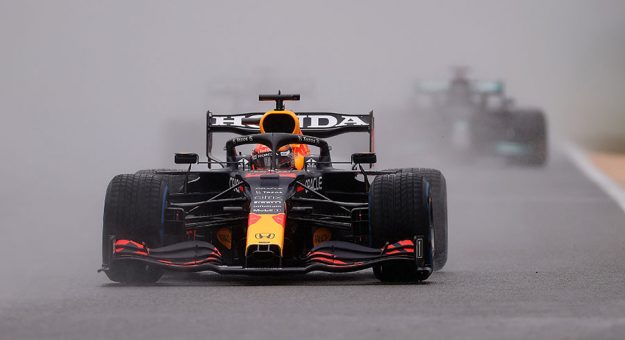CHARLOTTE, N.C. — There is no reason to mince words, the Belgian Grand Prix was an absolute farce.
The race, which the record books will show took place Aug. 29 at Circuit de Spa-Francorchamps in Stavelot, Belgium, should go down in history as one of the most ridiculous examples of decision-making by race officials.
A torrential downpour soaked the track prior to the start of the race and the rain simply never let up. It was so bad that Red Bull driver Sergio Perez stuffed his car in a barrier when he lost control in the soggy conditions while on his way to the grid.
Most of the drivers rightly argued that there was no way they could safely race in such horrid conditions. Not only was the rain itself a problem, but there was standing water at various places around the track.
It simply wasn’t safe. Thankfully, unlike in the past when F-1 officials decided to go forward with races despite poor weather conditions, officials delayed the start. Eventually, the red flag was formally displayed, indicating the race had been stopped as the clock for completion of the race clicked away.
Three hours later, officials decided to send the cars out on track to test the conditions behind the safety car. While the rain had subsided, conditions remained horrendous.
After two laps behind the safety car, the field was brought back into the pits and the race was red flagged. A few moments later, the race was declared official and polesitter Max Verstappen was recognized as the winner.
Wait. What?
Yes, you read that right. FIA and Formula 1 officials decided that two laps behind the safety car were sufficient to warrant a formal race victory. There was even a podium celebration for Verstappen, who was joined by surprise front-row qualifier George Russell for Williams and Mercedes ace Lewis Hamilton.
Drivers were awarded points, believe it or not. Granted, it wasn’t full points. Instead, the top-10 drivers were awarded half points since the race didn’t reach 75 percent of the scheduled distance.
I can’t imagine what the fans were thinking after seeing two laps behind the safety car, followed by a podium celebration. Had I paid money for that, I would have been outraged.
The fact that the race wasn’t run isn’t the issue here. In fact, it’s a great thing the race wasn’t held in such horrible conditions.
The issue is that FIA and F-1 officials awarded Verstappen a race win despite the fact a race was never actually held. Then, they had the gall to have a podium celebration as if they’d just completed a Grand Prix.
The race was two laps long. Unless you’re running on a 100-mile circuit for two laps, that is not a race. Not to mention the cars were never at speed and were behind the safety car the entire time.
There were certainly drivers who weren’t happy with the outcome. The most vocal of those was Hamilton, who had no problem voicing his disapproval with the outcome not so much for himself, but for the fans who invested time and money to attend the event.
“We should have called it quits, not risked drivers and most importantly refunded fans who are the heart of our sport,” Hamilton said in an Instagram post later in the day. “There was no moment today when we would have been able to race.
“I don’t know all the politics in the background, but my biggest concern is the fans probably should get their money back and, I don’t know if, by doing those two laps means they don’t. We have better values than that as a sport,” Hamilton added during a post-event news conference.
For some drivers, such as three-time F-1 champion Sebastian Vettel and two-time champion Fernando Alonso, the fact points were issued made the charade that much worse.
“For some of them it was a little bit of an early Christmas because there were some gifts given today with some people, because we didn’t race but you still get the position and the points. It is a little bit shocking,” Alonso said.
Vettel added, “It obviously was no race, so we should not have points.”
In the aftermath of the Belgian Grand Prix, FIA President Jean Todt announced there would be a review of Formula 1 regulations. Hopefully, that leads to some changes, though based on past history I wouldn’t count on it.
The only thing officials got right that day in Belgium was never formally starting the race. Beyond that, they got everything else wrong.
